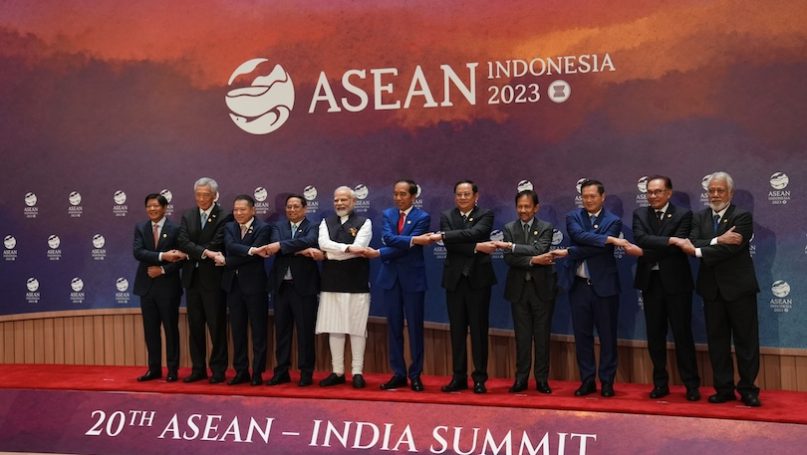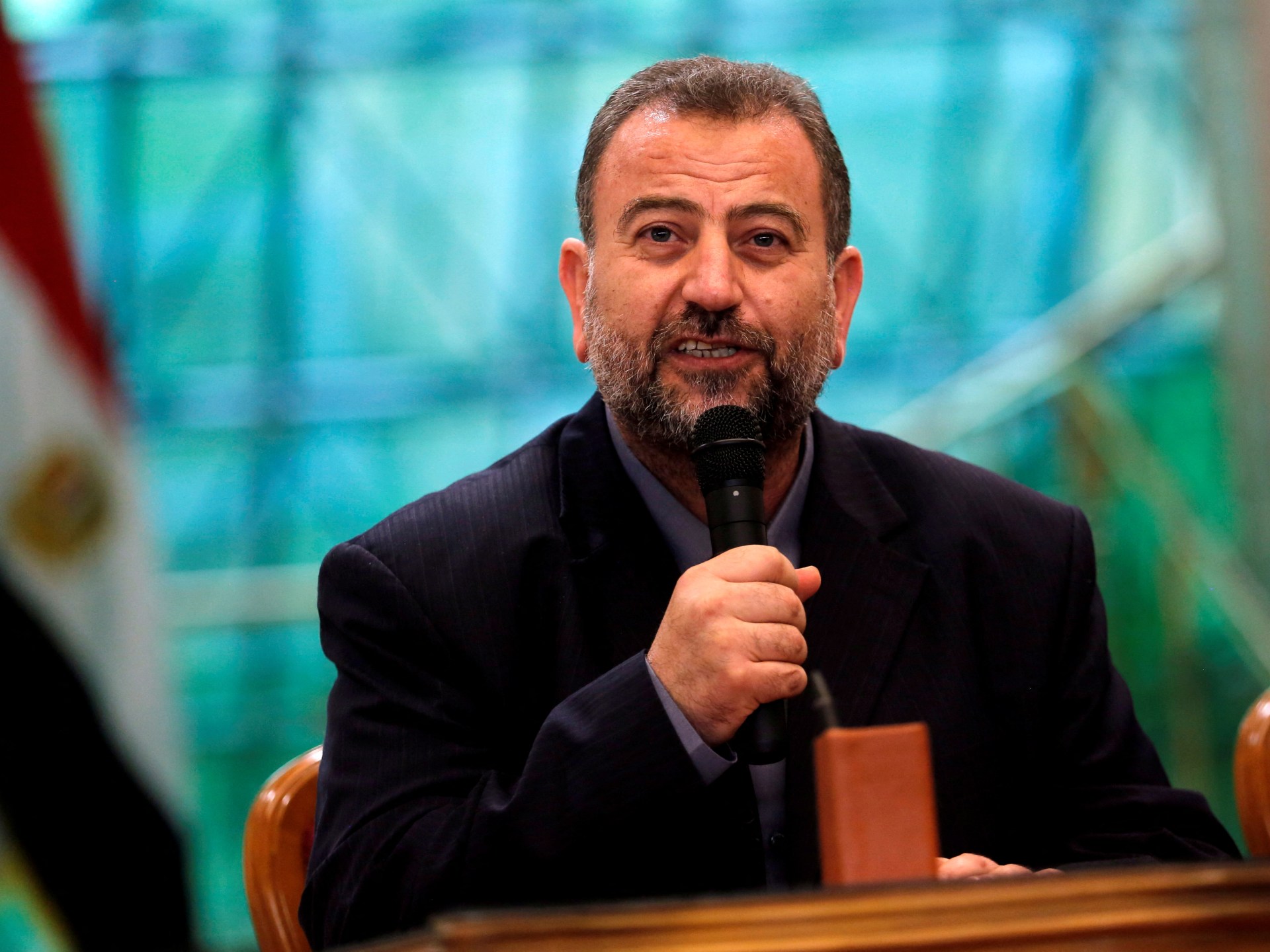
Stocksolution/Shutterstock
Indonesia concluded its chairmanship of the Association of Southeast Asian Nations (ASEAN) in December 2023. This marked a pivotal moment to evaluate the organization’s continued significance in shaping Asia’s regional order. Despite facing criticisms for a perceived lack of cohesion and tangible impact, ASEAN’s role in the regional order remains crucial. Under Indonesia’s leadership, the organization confronted challenges such as the escalating rivalry between China and the United States and the rise of new ‘minilateral’ security arrangements like the Quad and AUKUS, which threatened ASEAN’s central role. Yet, ASEAN’s resilience and strategic acumen have been key in revitalizing and bolstering its influence amidst these complex and shifting global dynamics.
ASEAN’s resilience, particularly in an era of intense great power rivalry in the region, is attributable to its strategic acumen. The bloc’s survival hinges on a unique diplomatic approach and ethos of regional cooperation. This strategic acumen is evident in its elite diplomatic culture, which has been instrumental in maintaining its enduring influence. In our research published in Contemporary Politics, we demonstrate how ASEAN’s shared diplomatic culture and values have shaped its intra-regional diplomacy, leading to the development of robust institutions capable of managing complex relationships with global powers. This framework has been crucial in enabling ASEAN to mitigate the impacts of great power rivalries, thereby maintaining regional balance and stability.
ASEAN’s diplomatic culture is not straightforward. It is complex and sometimes seemingly conflicting. On the one hand, it is characterized by a profound respect for sovereignty and non-interference. On the other, it emphasizes the importance of values such as human rights and democracy. Despite these apparent contradictions, the foundation of ASEAN’s diplomatic approach is built on consensus-building and a commitment to peaceful dispute resolution. These principles have been crucial not only in facilitating smooth intra-regional relations but also in guiding ASEAN’s interactions with external powers. This complex, yet coherent, culture of diplomacy has been the linchpin of ASEAN. It ensures that despite diverse national interests, the bloc remains united and effective in its collective approach.
Central to this diplomatic framework is the concept of ‘hedging,’ which is pivotal in ASEAN’s strategy for dealing with great power rivalry in the region. This nuanced approach, which carefully avoids exclusive alignment with any major power, is focused on maintaining ASEAN’s strategic autonomy and preserving regional balance. This strategy is critical in the Indo-Pacific, a region that is increasingly becoming the focal point of international geopolitical strategies. ASEAN’s skill in balancing its relationships within this complex geopolitical landscape highlights the effectiveness of its diplomatic culture and hedging strategy in sustaining regional stability and coherence.
The intensifying rivalry between China and the US, particularly in their efforts to shape regional order, has significantly tested the concept of ASEAN centrality. This challenge is evident in how these rivalries have at times strained ASEAN’s internal cohesion. Weaker member states within ASEAN may adopt differing stances on issues that align with the interests of these great powers, creating internal discord. Yet, it is ASEAN’s sophisticated diplomatic culture that has consistently provided a means to mediate these differences, thereby preserving the group’s unity and cohesiveness. ASEAN’s ability to independently manage its intra-regional affairs, even without consensus on sensitive issues like the South China Sea, underscores the strength of its diplomatic norms and its capacity for flexible and pragmatic reconciliatory politics.
This resilience and strategic adaptability of ASEAN can be contextualized within the framework of the English School of International Relations. This school of thought views the world as a society of states bound by common rules and shared interests. Through its diplomatic culture and commitment to regional cooperation, ASEAN embodies this concept, adeptly navigating the complex dynamics of great power rivalry while aligning its regional interests with those of its larger neighbors. The effectiveness of ASEAN’s approach in managing relations with major powers is a testament to its diplomatic skill rather than its material capabilities. ASEAN’s dynamic institutional frameworks have proven the bloc’s ability to maintain a cautious yet effective balance in its relations with global powers like China and the U.S. The diverse strategies employed by member states in these relationships further highlight the practicality and success of ASEAN’s diplomatic approach.
Reflecting on its period under Indonesia’s chairmanship, ASEAN displays an optimistic vision for the future of regional and international organizations. With the ASEAN Outlook on the Indo-Pacific (AOIP), the organization seeks to foster a diplomatic culture that emphasizes inclusivity. This approach challenges the prevailing belief that the influence of multilateral diplomacy and institutions is waning. Despite criticisms regarding the lack of concrete implementation of the AOIP, ASEAN’s engagement with the US-centric Indo-Pacific concept demonstrates its ongoing critical role in shaping and managing the dynamics of great power relations.
The ASEAN narrative in the context of great power rivalry transcends mere survival; it is a tale of strategic adaptation in a world influenced by both status quo and revisionist great powers. The insights gleaned from ASEAN’s approach – characterized by its rich diplomatic culture, strategic hedging, and adept management of relationships with major powers – provide valuable lessons for other regional organizations navigating the intricate landscape of global politics.
Further Reading on E-International Relations
About The Author(s)
Moch Faisal Karim is a senior lecturer in International Relations at Universitas Islam Internasional Indonesia.
I Gede Wahyu Wicaksana is a Professor in International Relations at Universitas Airlangga.
Editorial Credit(s)
Raghav Dua
Before you download your free e-book, please consider donating to support open access publishing.
E-IR is an independent non-profit publisher run by an all volunteer team. Your donations allow us to invest in new open access titles and pay our bandwidth bills to ensure we keep our existing titles free to view. Any amount, in any currency, is appreciated. Many thanks!
Donations are voluntary and not required to download the e-book - your link to download is below.

 Movie
Movie 4 months ago
95
4 months ago
95 






![Presidents Day Weekend Car Sales [2021 Edition] Presidents Day Weekend Car Sales [2021 Edition]](https://www.findthebestcarprice.com/wp-content/uploads/Presidents-Day-Weekend-car-sales.jpg)



 English (United States)
English (United States)